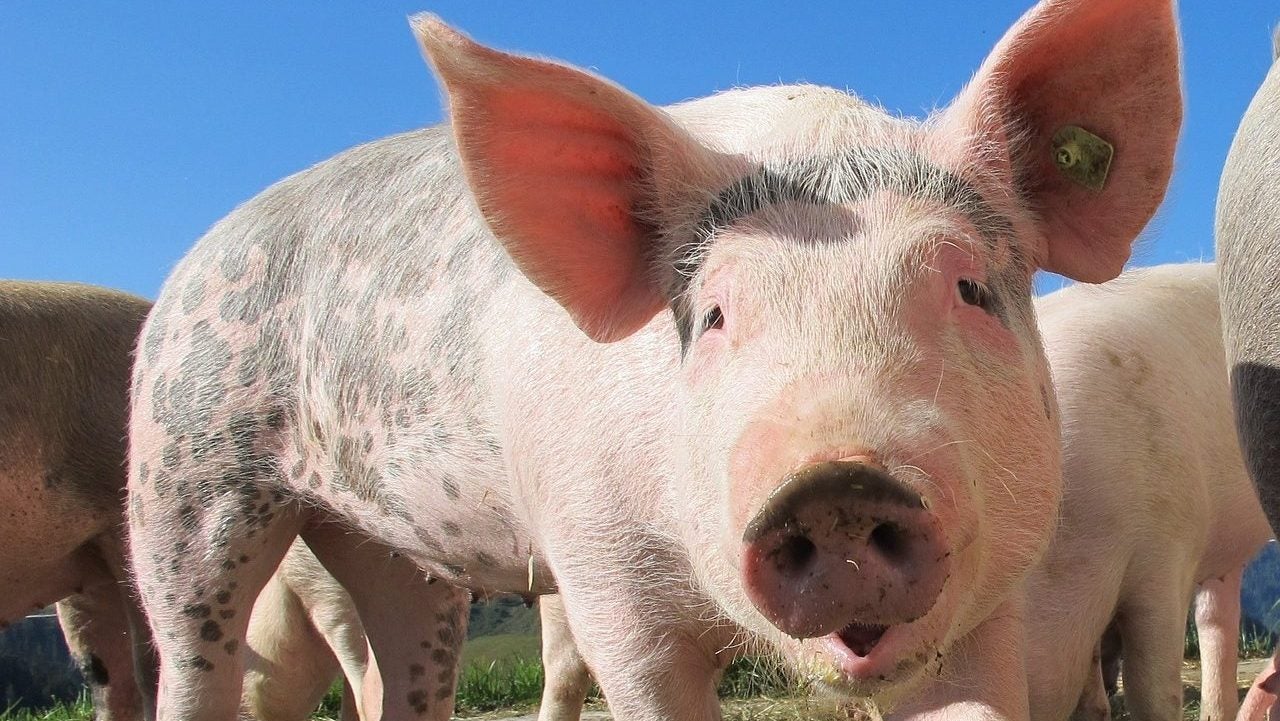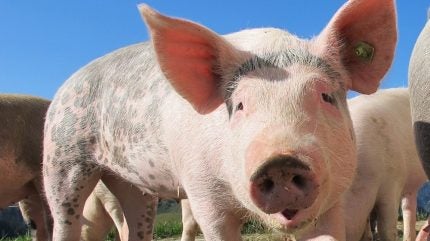

Alongside our daily news coverage, features and interviews, the Just Food team sifts through data sets to bring you a round-up of the week in numbers.
The prospect of a trade war between the EU and China erupted this week among the world’s two biggest pork producers.
China, the largest, launched an anti-dumping investigation into EU-exported pork at the request of local producers, supposedly in retaliation against Europe’s threat to impose tariffs on battery electric vehicles from China.
In another protein area, UK plant-based business This, operating in a category undergoing something of a re-set, has secured additional funding.
Lactalis, one of the largest dairy players in Romania, where volume growth is forecast to slow in the next few years, is to close another plant after shuttering two sites in 2020.
On the financial front, Spain-based frozen bakery business Europastry is revisiting a plan, first touted in 2007, to go public after exceeding €2bn ($2.1bn) in revenue in 2022 aided by international acquisitions.
Access the most comprehensive Company Profiles
on the market, powered by GlobalData. Save hours of research. Gain competitive edge.

Company Profile – free
sample
Your download email will arrive shortly
We are confident about the
unique
quality of our Company Profiles. However, we want you to make the most
beneficial
decision for your business, so we offer a free sample that you can download by
submitting the below form
By GlobalData
China’s EU pork gripe
The world’s second-largest economy has effectively accused EU pork importers of protectionist measures by purportedly exporting into China at rates below domestic prices.
China’s anti-dumping probe, which its government said could take as long as a year, follows last week’s announcement from the European Commission that the EU regulatory body may impose tariffs on imported electric vehicles in July.
A potential trade war could be damaging for both countries. In the EU’s case, pork product exports to China amounted to more than €2.5bn ($2.67bn) last year, with Spain the largest component at €1.2bn.
The EC concluded, following an investigation, that the battery electric vehicle “value chain in China benefits from unfair subsidisation, which is causing a threat of economic injury to EU BEV producers”.
Denmark’s pork industry association said a potential trade conflict could be “catastrophic” for the country’s exporters, which shipped $556m of pork products to China last year.
“The Commission takes note of the decision by the government of China to initiate an anti-dumping investigation on European imports of pork and swine by-products. The commission is now analysing the application,” Olof Gill, the EC’s spokesperson for trade and agriculture, said at a press conference.
“We will follow the proceedings very closely in coordination with EU industry and our member states. And we will intervene as appropriate to ensure that the investigation fully complies with all relevant World Trade Organization rules.”
The Danish Agriculture and Food Council said it is “deeply concerned by the outlook of a trade conflict”.
Its chairman Ulrik Bremholm added: “The Danish meat industry will be hit incredibly hard by potential Chinese restrictions on European meat.”
This’ funding win
The maker of the This Isn’t Pork Sausages and This Isn’t Beef Plant-Based Burgers claims to be “largest independent brand” in the UK meat-free category as it pocketed £20m ($25.3m) in new funding.
The Series C round from impact investor Planet First Partners takes the funding to date for London-headquartered This to around £35m since 2019, when the company was founded by Andy Shovel and Pete Sharman.
Mark Cuddigan, who took the CEO reins from the founders in February, said: “Our partnership will be key as we continue to lead a revolution through our plant-based food to protect animals and the environment, growing brand love to become market leaders in the UK.”
This said it will use the latest cash pile to “accelerate growth” in the UK with the launch of new products. Its existing range also includes This Isn’t Lamb Kebabs and This Isn’t Chicken Shawarma.
This said revenue grew by almost 50% last year to around £19.3m. The B-Corp-certified company produces alternatives to pork, beef and chicken supplied into major supermarkets such as Tesco, Sainsbury’s, Morrisons and Asda. It won its first overseas listing last year with Netherlands’ largest supermarket chain Albert Heijn.
Planet First Partners executive chairman Frédéricde Mévius said: “We believe the company is uniquely placed to capitalise on growing consumer preferences for sustainable and healthy food alternatives.”
Meanwhile, This became the third company in recent days to announce a product recall against the backdrop of an E. coli outbreak in the UK.
Lactalis consolidates
While Lactalis said the French dairy major plans to close its Miercurea Ciuc facility, investment will be funnelled into other Romania plants.
The site closure in Harghita County in eastern Transylvania will lead to the loss of around 95 jobs but Lactalis will plough funds into its four remaining Romania sites in Oiejdea, Sfantu Gheorghe, Campulung Moldovensec and Tunari.
“This new stage in organising our activity is part of Lactalis Group’s long-term strategy to consolidate investments and develop its businesses in Romania,” Onur Barim, the general manager of Lactalis’ business in Romania, said.
“We have invested over €60m in the last five years in Romania and, for the current year, we have planned investments of over €13m. These investments will allow us to be more competitive on the market and further diversify our product portfolios, for the final benefit of Romanian consumers.”
The Miercurea Ciuc facility was acquired through the 2016 acquisition of Covalact. The company was purchased from US investment fund SigmaBleyzer, with reports at the time suggesting the deal was inked for around €40m.
Prior to that transaction, the company also snapped up Romanian dairy business Albalact.
In 2020, Lactalis announced the closure of two plants in Romania. The sites, located in Floreni and Vatra Dornei, were part of a deal struck in 2008 for the Dorna Lactate company, marking the company’s entry to the country.
Europastry IPO
The Gallés family-owned bakery company emphasised an initial public offering, the size and timing of which has yet to be determined, will fund M&A and geographical expansion.
Jordi Gallés, majority shareholder and executive vice president, said: “Europastry is at the next stage of its development and this IPO is the natural way to fund and accelerate our growth strategy to foster our leadership position in the frozen bakery segment, while deleveraging and maintaining a prudent capital structure.
“Through international expansion, continued product innovations and a value-accretive acquisitions strategy we want to cement our position as a leader in the global frozen bakery market and promote sustainability in the sector.”
Founded in 1987 and headquartered in Barcelona, Europastry has been active in M&A, giving the company 27 production facilities supplying more than 80 different markets.
In 2022, the company bought the frozen bakery business of US-based Dawn Foods and in 2019 invested in Spanish pizza business Casa Bona. The same year it took full ownership of foodservice bakery supplier Ingapan and in 2018 acquired Portuguese business Confeitaria Torres.
Retail accounted for 56% of Europastry’s €1.35bn turnover last year, while the out-of-home channel made up 32% and B2B customers the remainder.
The Gallés will remain majority owners post the share offering. The IPO will consist of a primary new issue of shares amounting to around €225m.
A second tranche will also be made by investment firms connected with the Gallés family shareholders, namely Exponent, which is owned by the MCH Continuation Fund under the umbrella of MCH Private Equity, based in Madrid.

